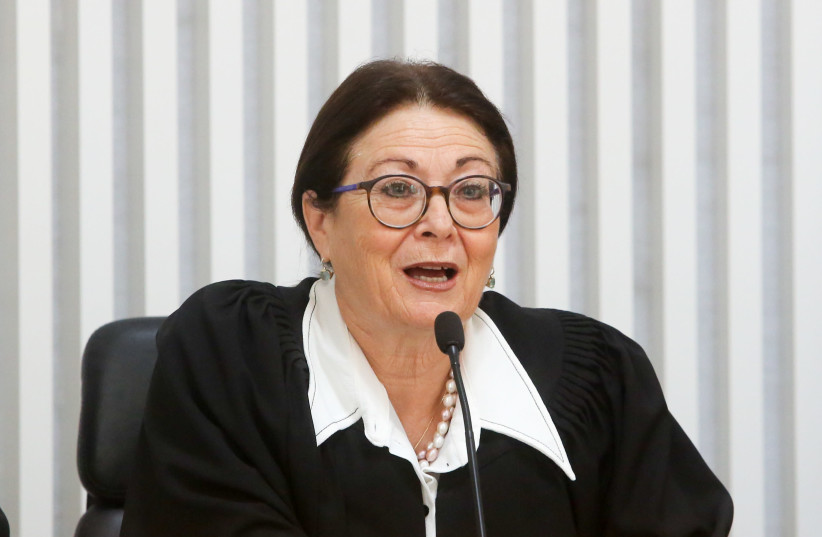Religious Zionist MK Simcha Rothman's appeal to the Supreme Court of Justice to disqualify court President Esther Hayut from presiding over the reasonableness standard law hearing was rejected on Thursday.
Supreme Court Vice President Uzi Vogelman rejected Rothman's claims that Hayut expressed bias against the judicial reform law in a January 12 speech, in which she said that reasonableness was a valuable legal tool.
Hayut had dismissed arguments that a judge didn't have the right to make judgements on the value and professional decisions of the government, saying that analyzed value and professional judgements in other accepted legal scenarios.
Hayut's comments were made in relation to the judicial reform plan proposed by Justice Minister Yariv Levin on January 4, not the legislation being brought before the bench, said Vogelman. She was addressing a theoretical problem, as a legal adviser or academic might.
There had been no legislation on the matter of the time, and her comments had been about general policy, not whether the July 24 basic law amendment passed tests of constitutionality.

Appeals to the court
As the president of the court, Hayut also has external relations duties besides the judicial responsibilities in the court room, said Vogelman. She was expressing a general concern about the violation of the independence of the judiciary.
Vogelman also said that precedent had shown that a judge expressing legal opinion on an issue didn't preclude them from taking part in a judicial processing on the same topic but with different legal facts. Her perception was not "locked in" as Rothman had argued. There was no concern about the appearance of bias, Vogelman said.
Knesset Constituion, Law, and Justice committee chairman Rothman responded to the decision on social media by saying that he would continue to work to improve the judicial system and its relationship with the public.
"One day the State of Israel will have a court that judges according to law and respects the public, and also the public's intelligence," said Rothman.
Rothman had appealed to the court on Monday as one of the respondents to the eight petitions against the judicial reform law.
He had brought his case of disqualification forward after Knesset Legal Advisor Sagit Afik reportedly refused to file the motion. Hayut had rejected petitions to disqualify her, but Vogelman took up the appeal.
A previous petition to disqualify Hayut was submitted by the Lavi NGO on August 10, but rejected by the court on August 13.
The reasonableness standard law prevents judicial review of government and ministerial administrative decisions, and is the first and so far only judicial reform provision to pass as legislation. A historic 15 justice panel will hear arguments for the striking down of the basic law amendment on Tuesday.
Knesset Speaker Amir Ohana roused the ire of the opposition on Wednesday evening when he argued that the High Court lacked the authority to strike down basic laws.
